
Bethany Brookshire
Bethany Brookshire was the staff writer at Science News for Students from 2013 to 2021. She has a B.S. in biology and a B.A. in philosophy from The College of William and Mary, and a Ph.D. in physiology and pharmacology from Wake Forest University School of Medicine. She is also a host on the podcast Science for the People, and a 2019-2020 MIT Knight Science Journalism Fellow.

Trustworthy journalism comes at a price.
Scientists and journalists share a core belief in questioning, observing and verifying to reach the truth. Science News reports on crucial research and discovery across science disciplines. We need your financial support to make it happen – every contribution makes a difference.
All Stories by Bethany Brookshire
-
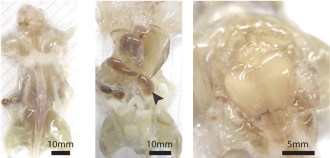 Health & Medicine
Health & MedicineClearing up anatomy with a see-through mouse
A new method begins with a mouse or rat and ends with a transparent body, where details can be visualized all the way to the DNA. Here’s how it works.
-
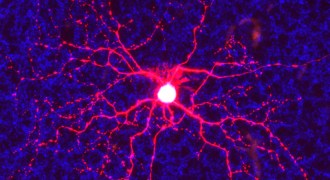 Neuroscience
NeuroscienceFor neurons, birthday matters
How brain cells make their connections during development still isn’t well understood. A new study shows that in the eye, a neuron’s birthday makes a difference in how it finds its targets.
-
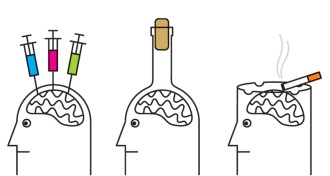 Psychology
PsychologyAddiction showcases the brain’s flexibility
People with substance abuse disorders are not just chasing a high. Their brains are adapting to the presence of drug, evidence of humans’ impressive neural plasticity.
-
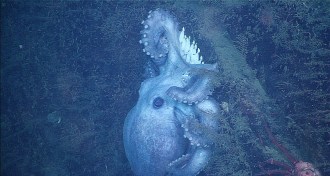 Animals
Animals‘Octomom’ sets egg-brooding record
The deep ocean reveals a new record as an octopus mom broods the same clutch of eggs for almost 4.5 years.
-
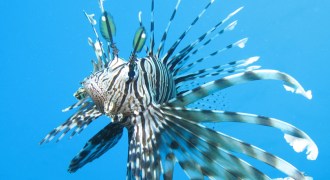 Science & Society
Science & SocietySpiny media battle highlights importance of scientific credit
Media coverage of research on invasive lionfish tolerating brackish water brought up issues of attribution and recognition in science.
-
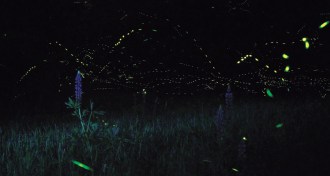 Science & Society
Science & SocietyAn app to track firefly flashings
This summer, you can contribute to citizen science by tracking lightning bugs in your backyard.
-
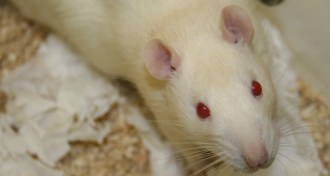 Neuroscience
NeuroscienceFor rats, a break from stress isn’t worth the relief
An unplanned vacation from stress might seem like a good idea, but a new study in rats shows that unpredictable escapes from pressure produce more strain on the first day back.
-
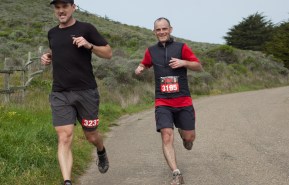 Psychology
PsychologyTo do your best, find a rival
There are rivals in every walk of life. A new study shows that for runners, a rival might help them do their best.
-
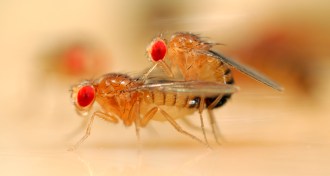 Neuroscience
NeuroscienceIn female flies, sex is more complex than yes or no
A female fruit fly’s role in mating has appeared to be a simple yes or no. But now three new papers show the behavior is far more subtle, and intricate, than first thought.
-
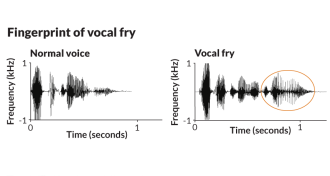 Psychology
PsychologyVocal fry
At the lowest registers of the human voice, a creaky, popping sound known as vocal fry emerges.
-
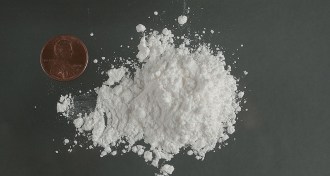 Neuroscience
NeuroscienceA mutated bacterial enzyme gobbles up cocaine
Cocaine is highly addictive, and those attempting to quit often relapse. Modifications to an enzyme that breaks down cocaine could help prevent abstinence setbacks.
-
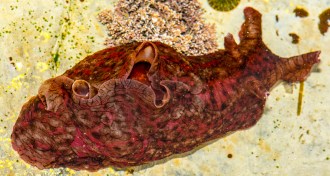 Neuroscience
NeuroscienceThe simplest form of learning is really quite complex
Habituation, the ability to ignore irrelevant stimuli, is the simplest form of learning but may require a whole neural network.